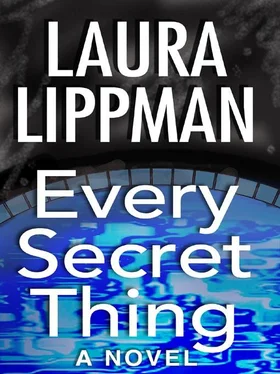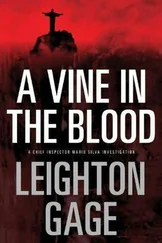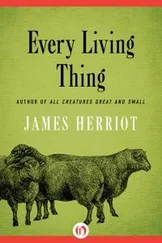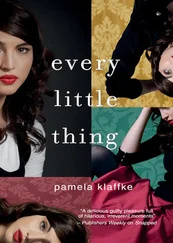“Didn’t know the number, didn’t know the voice,” he said promptly. “We got a new weirdo joining the ranks?”
“Maybe.”
“Well, whoever it was asked for you by name. You got a friend out there?”
No, but she had a ’trib line on the story, she remembered, and had tried to make a few follow-up phone calls this evening.
She closed her AOL e-mail account, on which she had been sending witty, vicious letters to various college friends, and called up the paper’s in-house library. She specified a date range, giving herself a three-year period-people were imperfect when it came to time-and dropped in the terms Olivia and missing. Too many files came back, including several reviews of Twelfth Night. She looked at the notes she had doodled as the woman spoke. She tried Olivia and Poole .
Seventeen matches in all, and not one more recent than the summer of the crime, seven years earlier. Mira read with careful, absorbed attention, breaking away only to watch the evening newscasts. All four programs carried stories about the missing girl, but not one mentioned the old case or suggested a connection. There seemed to be no developments at all.
When the end of Mira’s shift arrived, the night editor had to remind her three times that she was free to go. She printed out the library stories she had been reading and tucked them away in a manila folder, taking them home.
Nancy had been experimenting with several postures and stances in interrogations, not to mention various intonations and degrees of eye contact. Lately she had tried standing, her back against the door, her arms folded across her chest. She thought this pose projected the air of a stern teacher or parent. “That’s the problem,” Lenhardt had told her. “You do look like a teacher, and these aren’t the kind of people who have fond memories of school. If these guys had listened to their teachers, they might have turned out a little differently.”
He was right. The men-and so far Nancy had interviewed mostly young men, with an occasional mom and girlfriend thrown into the mix-were sullen or resentful, seldom cooperative. But Nancy couldn’t intimidate the way Infante did, especially toward the end of the day, when his five o’clock shadow gave him that blue-black werewolf look. Nor did she have Lenhardt’s air of mournful disappointment, which was surprisingly effective with a certain kind of mutt. Plus, if she stood, it gave her a height advantage.
One thing she was sure of: She wasn’t going to go all girly. A cop couldn’t flirt confessions out of people, and she would look weak if she tried.
None of these concerns, however, applied to Alice Manning, who had arrived here with the nervous shake of someone who actually respected authority. Nancy took a seat across from her in the interview room, hands folded on the table in front of her. Alice unconsciously mirrored her, the way a chimpanzee in a zoo imitated onlookers. Only she looked like someone waiting for a meal at a city mission. Nancy glanced at the girl’s pale forearms, searching for fresh nicks or cuts, but saw nothing. The rest of her was too covered up to scout.
“I want to help. I really, really want to help,” Alice kept repeating.
“Well, the way you can help is by telling us what you know.”
“I’m not sure I know anything.”
“So why are you here?”
“Because my mom said you wanted to talk to me.”
“Do you know why we came to your house looking for you? Do you know why we think you may have information to share with us?”
“Because of my…past.”
The choice of word sounded like something Alice had been taught to say. Nancy could imagine Helen Manning schooling her daughter in just this fashion, giving her this grand yet inadequate word, as if Alice were a young Bette Davis, back in her glory days, when her big wounded eyes always seemed to hold some secret.
“Sort of.” It was important not to lead the girl, not to give her too much information. “A little girl disappeared Friday night. We’re looking at a lot of leads.”
“I’m a lead?” Alice tested the word, at once attracted and repelled.
“Well, that’s what we’re here to find out.”
“Is lead another word for suspect?”
Nancy couldn’t swear to it, but she thought she caught a wisp of something sly in Alice ’s face just then, a hard light in those wide blue eyes. Again, very Bette Davis. Like the song, the stupid song that had been on the radio when Nancy was in middle school. She’ll tease you, the song had promised. It was the only line Nancy could remember. She will something and something and tease you.
“Sometimes leads are suspects. And sometimes they’re just leads. Right now, you’re just a lead.”
Would Alice think to ask for a lawyer? It was funny how much and how little neophytes knew about the criminal process. Repeat offenders, of course, had the drill down cold. But first-timers didn’t think they could ask for a lawyer until they had been charged and read their Miranda rights. They didn’t realize they could just get up and walk out, say, “I’m not talking to you until you’re ready to charge me.” Or that they could lawyer up anytime.
Then again, Alice wasn’t a first-timer. And she had been cagey at eleven, Nancy recalled, almost preternaturally consistent, according to the detectives who caught the case. They had taken the baby because they thought she wasn’t safe. They were scared to return her after her parents made such a big deal of her disappearance. And then the baby got sick. But Alice didn’t know why Ronnie killed her. She wasn’t even there at the time.
“Why don’t you tell me,” Nancy began, her voice as bland as possible, “where you were Friday afternoon and evening.”
“I was walking.”
“Walking?”
“I’ve been walking a lot. It’s a good way to lose weight.”
Nancy willed herself not to let her eyes drift down to the indistinct bulk beneath Alice ’s bright pink T-shirt. The girl had to weigh almost two hundred pounds. God help her if she had weighed more when she came home.
“Walking? For how long?”
“Well, I don’t walk every minute I’m out.” Alice must have seen where the question was going. “I walk for a while, then take a break inside someplace air-conditioned, someplace they’ll let you sit or browse.”
“Like a fast-food restaurant.”
“Yeah, although there you have to buy something. At least a drink. Which is a waste of money, they put so much ice in.”
“Or a mall?” Keeping it generic was deliberate. No need to mention Westview yet.
“Sure.”
“So where did you walk on Friday, where did you stop?”
“I started out Route 40 and I filled out an application at an Arby’s-I’m looking for a job. I don’t want to work in fast food, but my mom says I can’t afford to be picky.”
“It’s not so bad. I did it for a little while.”
“Yeah?” She seemed genuinely interested.
“I was a counter girl at Long John Silver’s the summer I was sixteen, until I got a waitressing job at a Chili’s. I was saving up for a car.”
Why had she told the girl this stray bit of personal information? It was one thing Nancy never did. But there was something about Alice that made Nancy want to curry favor-something closed off, an unspoken accusation in her face, like a stoic child who had taken an unearned punishment without flinching or complaining.
“I like Chili’s,” Alice offered, “but my mom doesn’t. Were you popular?”
“At the restaurant?”
“In high school.”
“I don’t know. I never thought about it.” She was glad Lenhardt wasn’t watching this. It was bad enough that Infante was tracking the conversation through the one-way glass. She was losing control, letting Alice direct the flow of conversation. Maybe it would loosen the girl up, lead to something she could use.
Читать дальше












